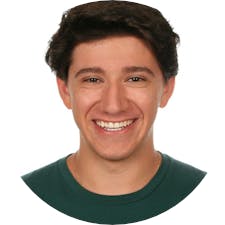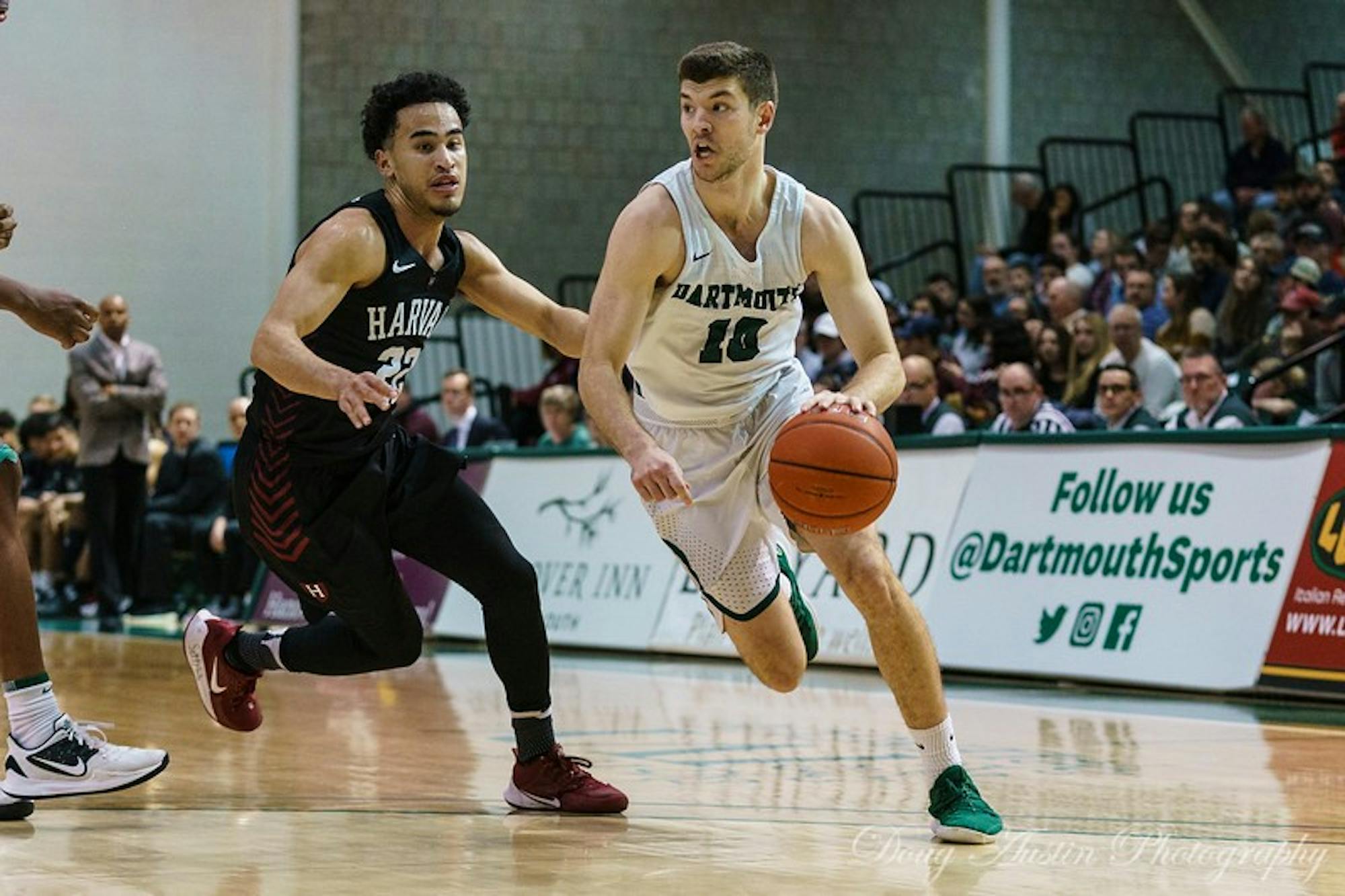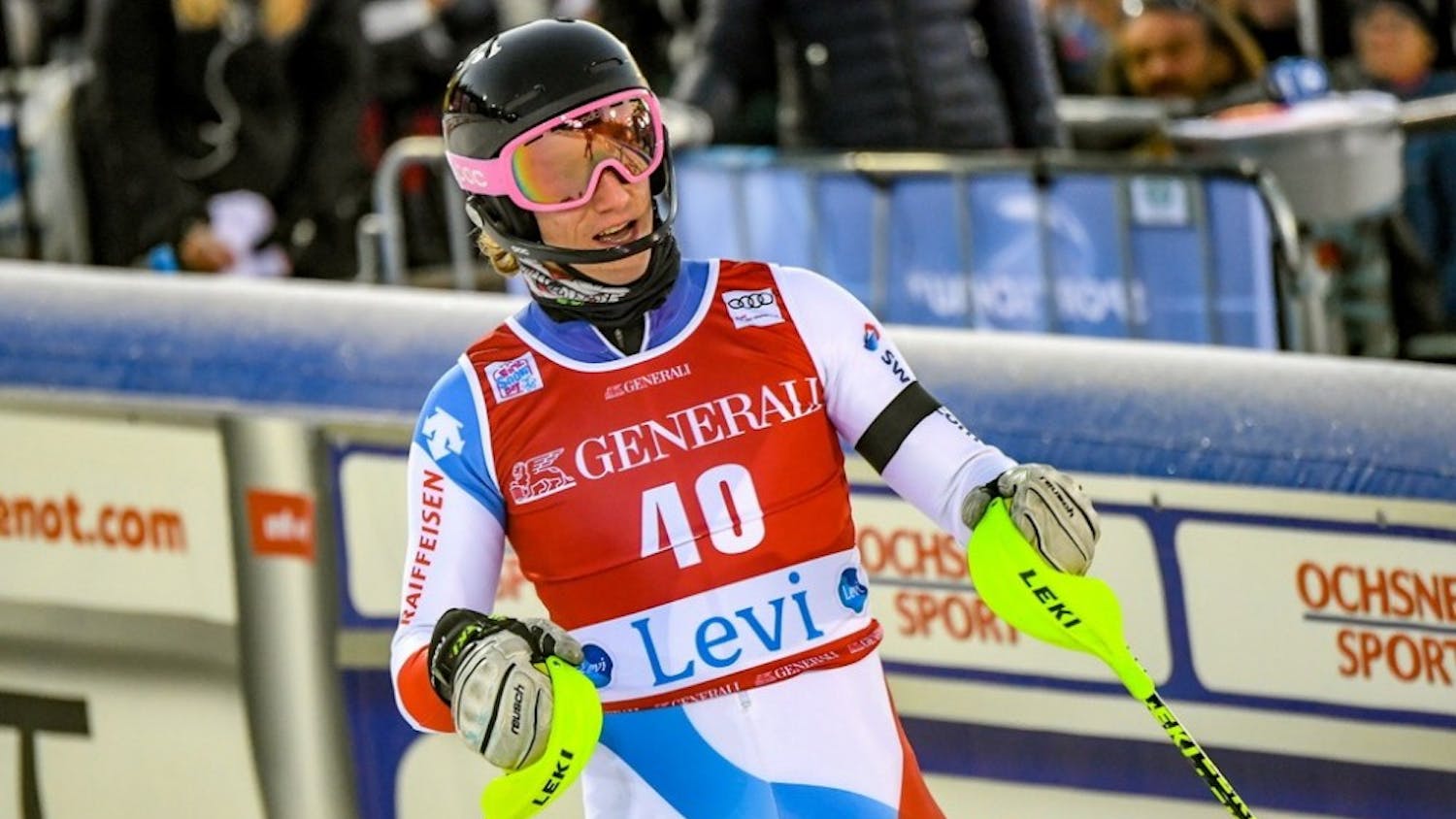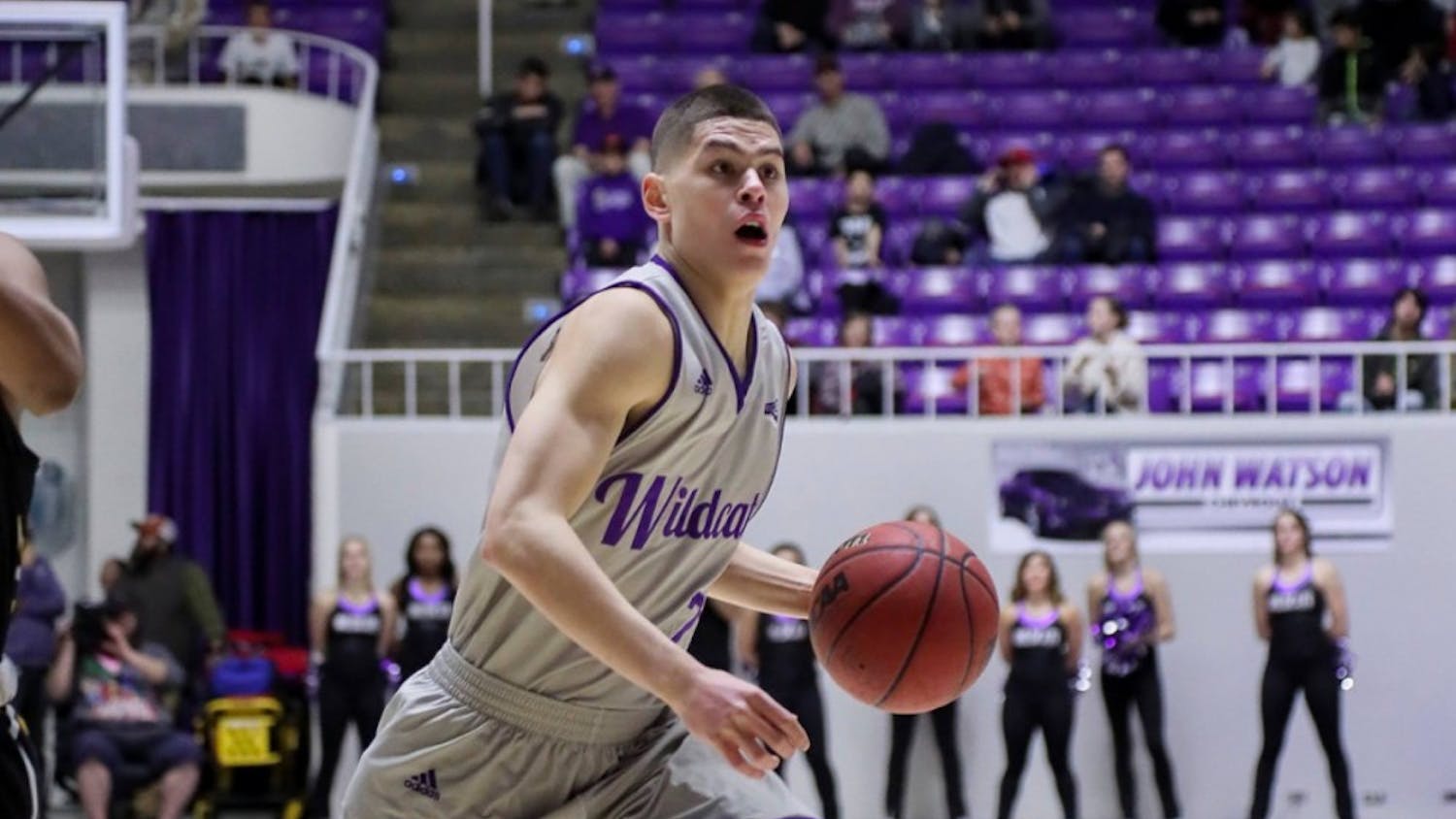During his four years at Dartmouth, the most emotion James Foye ’20 ever showed on a basketball court came after Aaryn Rai ’21 hit a game-winning shot versus Columbia University this past season. Foye called it “the biggest fist pump of my life.”
But that’s just who Foye is. He is unquestionably talented but always humble. He works harder than just about anyone to get better, and he never stops — literally. He went as far as running until he was sick during the team’s pacer test last fall.
“It wasn’t because he was trying to be first,” head coach David McLaughlin said. “He was running until he could not run anymore. When you look at that, that is a sign of, ‘Okay, this is one of our leaders.’”
Foye finished his Dartmouth career not only as a two-time team captain, but also as one of the most prolific 3-point shooters the Big Green has ever seen. He is one of only four Big Green players in program history to have made at least 100 3-pointers at a 40 percent rate or better. Chris Knight ’21 said that the team will miss his shooting immensely.
“He was really good at understanding the offense,” Knight said. “Sometimes you would switch up his position, and he would be able to understand where he should go without even having to practice it.”
Foye said that he has been playing basketball his whole life, referencing a picture of him as a toddler dunking on a Little Tikes hoop as evidence. He said that the picture itself is “ironic” because he never dunked in-game in a Dartmouth uniform.
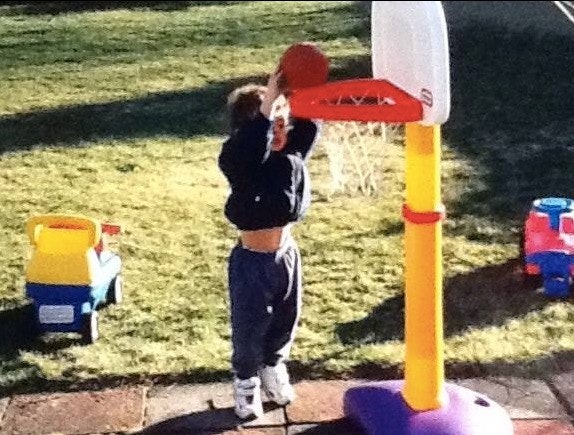
As a child, Foye played multiple sports, including football, baseball and soccer. However, Foye said that he “always loved basketball the most,” so he began to focus on it when he made the jump from public high school to Phillips Exeter Academy. At Exeter, Foye’s goal to play at the Division I level truly came into focus.
“I fell in love with getting better,” he said. “[I] fell in love with working a very specific part of my game that needed to be worked on and seeing those improvements flourish — whether it was at prep school or even in travel or [Amateur Athletic Union] ball — and that’s what [made] me lucky enough to earn a spot at Dartmouth.”
Dartmouth was the first program to make Foye a Division I offer, and he said that level of trust from the coaching staff meant a lot to him. When he visited campus, Foye knew that Hanover was the place where he wanted to spend his next four years. He committed before the start of his senior year of high school.
“I felt like the campus was what college life should be like,” he said. “So the combination of trust in the coaching staff and being appreciative that they were the one to be the first to pull the trigger on me, and then kind of falling in love with Dartmouth the school the first time I saw it — it made the decision pretty easy.”
However, Paul Cormier — then the head coach of the Big Green and the one who recruited Foye — was asked not to return for the 2016-17 season, Foye’s freshman campaign. McLaughlin was hired shortly thereafter. Foye felt almost as if he was being evaluated all over again.
“It was definitely interesting, not what you expect coming into college,” Foye said. “But I think it motivated me and the rest of the teammates more to want to improve and show Coach [McLaughlin] what we could do.”
Foye didn’t play much as a freshman. He appeared in only eight games, playing a total of 23 minutes. He did hit his first 3-pointer at the University of Vermont, celebrating the moment by “[running] back on defense as fast as I could, trying to figure out what was going on.”
He saw an increase in playing time as a sophomore, though those minutes coincided with what Foye called “one of the hardest times of my life, basketball-wise.” Foye started the season 2-for-19 beyond the arc through his first 18 games. He finished the season averaging 1.5 points in 10.6 minutes played per game, shooting just 26.7 percent from the field and 21.6 percent from the 3-point line.
“That really gets you to think hard about what’s wrong with your game or what you can do to be better,” he said. “You’re always trying to improve. You’re happy that your role has increased, but you want to excel in that role.”
During Foye’s junior season, he broke out in a starting role for the Big Green. Ian Sistare ’20, one of Foye’s co-captains, credited a sophomore summer strength and conditioning program for their rapid development.
“We'd do that every day, Monday through Friday at 8 a.m.,” Sistare said. “And then in the afternoons, we'd get our basketball skill session in, one or two times at least, so it was a bunch of working out — a lot of time devoted to getting us ready for the fall — and the results really showed, for him especially.”
Foye flourished the next winter as a starting guard and team captain. During the 2018-19 season, he was a key cog behind a high-flying Big Green offense, which averaged an adjusted 103.4 points per 100 possessions. He went from averaging under two points per game as a sophomore to putting up double-digit totals regularly. Foye scored more points in his first four games as a junior than he did over his first two seasons combined.
Sistare recounted the evolution of Foye’s role on the team and attributed it to his drive to improve his game.
“He came in his freshman year, [and] he didn't play all that much, but throughout his time he worked so very hard at his skills that he eventually became one of our best players,” Sistare said. “It was incredible to see his journey from the time he got here to the time he left, and I was really lucky to be a part of it.”
Foye said that his favorite moment of that season came in Northern Ireland, when the team beat the University of Albany in the Belfast Classic, 91-77. In that game, Foye scored 20 points for the first time in his career.
In his final season, Foye’s performance held relatively constant as he averaged 9.7 points per game on 42.0 percent shooting from the field and 42.6 percent from the 3-point line. His outlook, however, changed significantly.
“As a senior, you gotta step up,” he said. “People look to you both on and off the court. I think that was another challenge that kept me uncomfortable but ended up helping me grow as a person.”
As his playing time and role on the court increased, the attention Foye received wasn’t just for his basketball prowess. Throughout his final two seasons, the academic accolades piled up. After his junior season, Foye was named to the Google Cloud Academic All-America Second Team and the Academic All-Ivy League Winter Team. He also received the Class of 1948 Scholar-Athlete Award, given by the Dartmouth athletics department. His senior year, Foye was named to the Senior CLASS Award All-America Second Team.
He was the quintessential student-athlete, graduating with a 3.97 grade point average and a degree in economics. Foye said that he is moving to San Francisco this summer, where he will work in private equity.
“[My college experience was] what I would have wanted and more — so much more,” he said. “The gut-reaction that I had visiting Dartmouth — that this is a place that you want to go to college — held true. I just love Dartmouth. I’ll forever be loyal to it and forever cherish the time I had.”
McLaughlin said that moving on from Foye will be difficult.
“You don’t replace a James Foye,” he said. “You just hopefully have people that learn from him and how he approached his every day craft. What you have to do is just remind guys that this is the standard that was set.”
